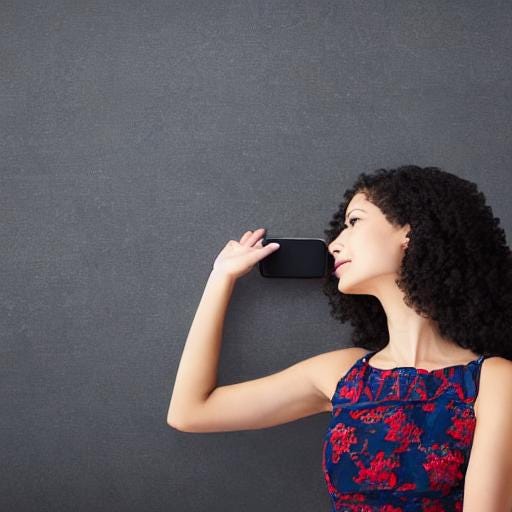Hi everyone, I’m back again for my 3rd consecutive week!!! 🎉
It takes a lot of determination to come back time and time again to post on this Substack, but here I am ready to give you amazing information that you may not have needed about life. 🤠

So, onto the post:
Should we use distractions as a coping skill?
In my experience, whenever I’m faced with a crappy situation I don’t want to deal with or I’m overwhelmed with too many feelings, I use distractions to deal it.
The way that I’ve learned about distractions is that they’re harmful. They distract, meaning that they can’t be good if they take us away from a task or obligation we have to do.
But what if they’re not as bad as we think?
For example, take an example situation I might have to deal with, aka a work deadline where I need to submit an article next Monday. Okay, so instead of figuring out the first thing I need to do, I ignore everything that’s in front of me and the warning bells in my head and start to play video games.
Maybe my more logical part brain is going, “What are you doing??? Shouldn’t you write something down?” While the other half of my brain is like, “Why? Is it really that important? I’ve been through a lot lately. I’m exhausted. So I’m going to play this new video game for one hour until I feel better.”
A lot of times, when I give myself space to leave my work desk and do something else, I also give myself space to process my feelings to avoid rushing to do something that I have no energy for.
Yes, that deadline is important, but my mental health is too.
So many of us think of distractions as “bad” and unnecessary. An image that comes to mind when I think of this is a teenager coming home from school with homework due the next day- but instead of sitting down to do it, they sit in their room to: play video games/ hang out with friends/ scroll through social media/ anything else to “distract” them from life.
Parents or guardians might call that an unhealthy distraction, when it may be that the teen is so overwhelmed from school or with homework that they need a moment to destress.
Distractions as a healthy trait
When we get distracted, it might led us to figure out how to live better lives.
Dr. Devon Price, a social psychologist and author of Laziness Does Not Exist, writes in their book that when we get “lazy,” it’s not that we’re sad sacks that don’t know how to take care of ourselves. It’s that we’re overwhelmed and we need time to decompress.
Price writes that a typical work day is already too much for a lot of us. Freelancers and gig workers have flexibility, but at the end of the day, we’re faced with pressures from society to do more, work more, and be more successful. And that’s a lot for anyone to deal with.
So the view that distractions actually suck and don’t work isn’t true. People aren’t robots. Maybe, our distractions might lead us to think more and lead us to wonder why we’re taking so much time to ourselves.
According to Price, some benefits to using distractions (or letting yourself be lazy) are:
🎨 Becoming more creative; letting ourselves feel our emotions and ideas we’ve been stuffing inside of ourselves for so long
💭 Problem-solve what needs to change in our lives (i.e. financially, emotionally, psychologically, etc.) Maybe you have thoughts like, “oh yeah! My boss does suck. I can’t believe it took me years to figure that out.”
🧘🏼♀️ Remind us when we need to stop and take a break. Many of us ignore our internal cues to stop and figure out why we’re doing what we’re doing. And honestly, more people do this than we realize.
So does this mean I can do whatever I want from now on?
Doing this is a lot of work. I don’t mean doing whatever you want to do 24/7, but I mean letting ourselves figure out if our daily responsibilities have been too much for us.
Some effort everyday is necessary for us to be productive and to achieve our goals. But too many of us have been barred from doing what we want to do, that we can’t just say, “Forget it… I can’t do this anymore” because of issues that we feel we have to bear.
A lot of things aren’t in our control, but more choices are in our hands than we think. We just have to let our distractions point us in the right direction.




